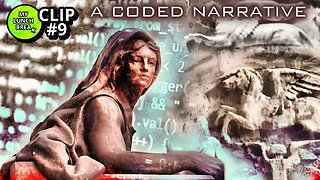TANGO BAR (1935) Carlos Gardel, Rosita Moreno & Enrique de Rosas | Drama, Musical | B&W
Tango Bar is the last film made by the tango singer Carlos Gardel . Directed by the Austrian John Reinhardt , it is also the last of Gardel's series of American films made by the Paramount company at the Kaufman Astoria studios located in Astoria (Queens) in New York . The film has a script by Alfredo Le Pera and was co-starred by Rosita Moreno , Enrique de Rosas and Tito Lusiardo .
Gardel sings the songs Por una cabeza , Los ojos de mi moza , Lejana tierra mía and Arrabal amargo . It was released on July 5, 1935 in New York , a few days after Gardel died in a plane crash.
SYNOPSIS
The plot is a romantic detective story, which revolves around a horse racing bettor (Gardel) who opens a tango bar in Barcelona and a jewel thief (Rosita Moreno), who is blackmailed.
Ricardo Fuentes (Carlos Gardel) leaves Buenos Aires after loosing in horse races to go to Barcelona, where he plans to open a tango bar, a new concept of tango dance show and dance saloon. On the ship he meets Laura Montalván (Rosita Moreno) who happens to be a thief working with a thief pal. Ricardo watches them robbing a lady's bracelet aboard but decides not to report them because he has fallen in love with Laura. Once in Barcelona, he opens the tango bar but Laura's partner tells him he sold the bracelet and now needs to recover it to avoid both Laura and him going to jail.
CAST & CREW
Carlos Gardel as Ricardo Fuentes
Rosita Moreno as Laura Montalvan
Enrique de Rosas as Commander Zerrillo
Tito Lusiardo as Juan Carlos Puccini
Jose Luis Tortosa as Captain
Colette D'Arville as Chichita
Manuel Peluffo as Manuel González
Suzanne Dulier as Laura's Maid
William Gordon as Mr Cohen
Carmen Rodriguez as Mrs. Cohen
Jose Nieto as Inspector
Juan D'Vega as Ramos
Ted Stanhope as Gustav
Director John Reinhardt
Producer Samuel Piza Chamorro
Writer Alfredo le Pera
Music Alberto Castellanos, Carlos Gardel
Sound Western Electric
Cinematographer William Miller
Country Argentina / USA
Year 1935
Duration 62 minutes
Language Spanish
Production company Success Productions
Distribution by Paramount Pictures
NOTES
Between 1931 and 1932 Carlos Gardel had made four films ( Luces de Buenos Aires , Espérame , La casa es seria and Melodía de arrabal ) with the American company Paramount in its European studios located in France. The movies made Gardel an international star, especially in the Spanish-speaking world. At the end of 1933, Gardel traveled to the United States for the first time , where he sang with great success on NBC in New York, accompanied by the radio orchestra directed by Hugo Mariani and arranged by the Argentine musician Terig Tucci , who had lived for years in USA.
In this context, Gardel summoned Alfredo Le Pera to New York to act as his representative before Paramount , in order to make a film in the United States, at a time when that country was suffering from the great depression of the 1990s. 1930. The contract was signed on March 20, 1934, agreeing to create a subsidiary production company of the American film giant under the name of Éxito Corporation, whose sole shareholder was the Argentine singer. 1 Initially, two films were made that same year: Cuesta abajo and El tango en Broadway , directed by the Frenchman Louis J. Gasnier, which due to the rejection it aroused in Gardel and his artistic partners, was replaced in the final two films. After going to France for a short time, Gardel returned to New York at the end of 1934, acting on NBC and taking part in the filming of Paramount's music catalog Star Hunters ( its original title is The Big Broadcast of 1936 ).
Enthusiastic with the success of Gardel's films, Paramount decided to film two more films in 1935, which would be his last films: The day you love me and Tango bar . Gardel and Le Pera had already decided that their period of work with Gasnier was exhausted and they chose John Reinhardt , a young director of Austrian origin, who had directed several films with Latino actors and who was much more receptive to the suggestions of the duo. . 2 Two central characteristics stand out in these last two films: the first is the decision to record Gardel's singing live, eliminating the traditional dubbing in post-production; The second is the decision to direct the tone of the films towards audiences in Spanish-speaking countries, moving away from both the Buenos Aires tone and the European-North American stereotypes. 3
As already seen in Gardel's films, the production continued to improve the level of acting by incorporating the excellent Argentine actor Enrique de Rosas , who joined the previous cast made up of Rosita Moreno, Tito Luisardo, Fernando Adelantado and Manuel Peluffo.
#oldmovies #freemovies #drama #musical #freemoviesonline #classicfilms #blackandwhite #lostandfoundfilms
-
 4:58:46
4:58:46
Lost n Found Films
7 hours agoTHE GREEN ARCHER (1940) Victor Jory, Iris Meredith & James Craven | Action, Adventure, Crime | B&W
38 -
 LIVE
LIVE
The Rubin Report
39 minutes agoWhy Won't News Show This Trump Debate Clip?
2,343 watching -
 LIVE
LIVE
Benny Johnson
19 minutes agoModerators AMBUSH Trump, Team Up with Kamala | ATTACKED With ‘Fact Checks’ | Trump REVENGE Begins
1,714 watching -
 11:51
11:51
Howard Lutnick
14 hours agoThe Fed and President Trump's Economic Policies - my interview with CNBC
6.18K12 -
 1:30:02
1:30:02
Graham Allen
3 hours agoWho Won The 3 on 1 Debate? Trump or The Media?! + Taylor Swift Endorses Harris!
53.1K178 -
 LIVE
LIVE
Caleb Hammer
19 hours agoI Finally Lost My Mind | Financial Audit
149 watching -
 LIVE
LIVE
Liam Reid
22 hours agoSnowmobile Water Skips Entire Pond!!
163 watching -
 LIVE
LIVE
MYLUNCHBREAK CHANNEL PAGE
1 hour agoA Coded Narrative?
271 watching -
 LIVE
LIVE
LFA TV
3 hours agoTIME TO FACT CHECK! | LIVE FROM AMERICA 9.11.24 11am EST
2,027 watching -
 40:01
40:01
BonginoReport
3 hours agoKamala’s Shocking Slip-Up That Could Drive Away Millions Of Young Voters (Ep.40) - 09/11/24
68.3K131